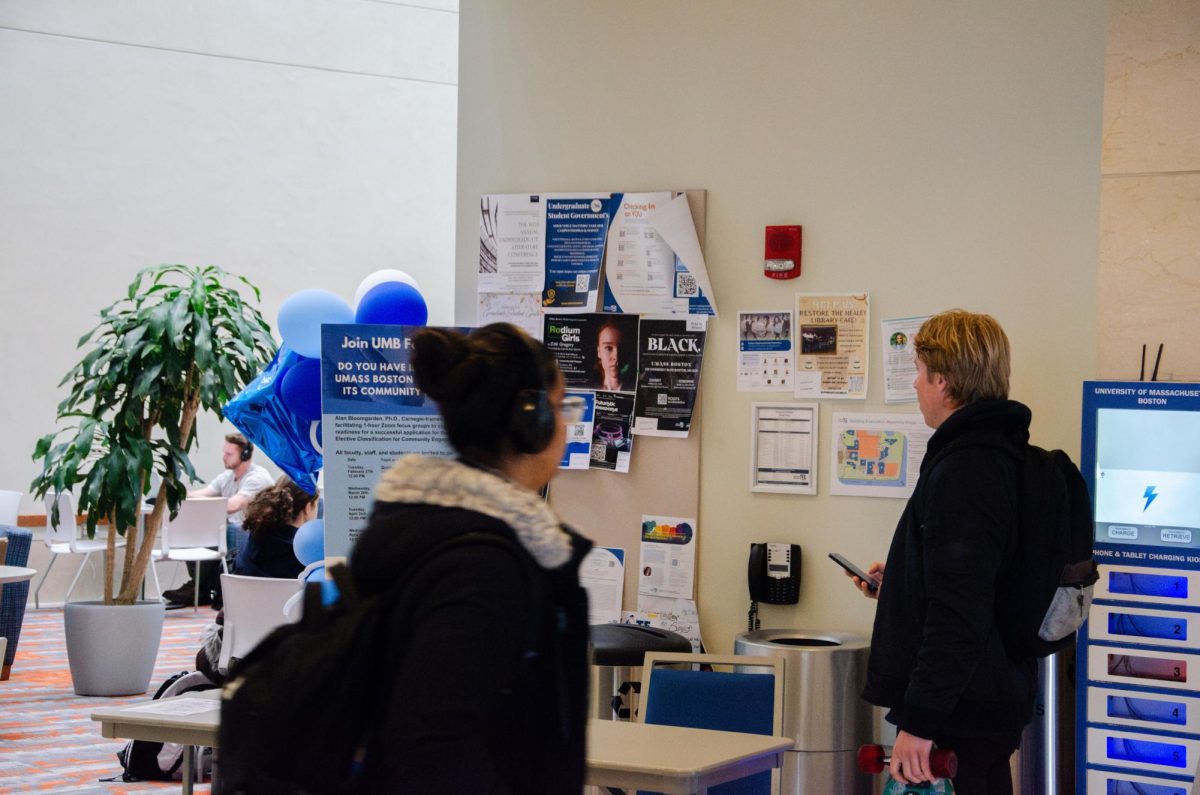UMass Boston’s Department of Political Science created a survey that will be running throughout this upcoming week. The survey, which is anonymous, is conducted by students of Professor Paul Watanabe’s course titled, “Political Science 330: Presidential Elections.”
Its main purpose is to find a trend in voting behavior. The project began Monday, April 1, with students from the class engaging in community outreach by creating flyers and spreading the word in lectures around campus. The project is open to students and staff members alike.
After a week of surveying at the beginning of the month, students acquired over 140 participants. After two weeks, Watanabe hopes to accumulate 500–1,000 total respondents, and through reaching UMass Boston community members, he believes the results will have intriguing findings. His teaching assistant, Celine Voyard, reiterated this belief.
“UMass Boston has a diverse population, and we have a lot of younger voters who may be voting for the first time,” Voyard said. “So, when sampling, we may get much different results compared to national polls on the political climate because we have a lot of new voters—new young thinkers who are trying to decide what they think is important and who they think should be leading. I think you’ll get a more unique perspective when listening to students and faculty at UMass Boston than you would in other parts of the country.”
Questions range from multiple choice regarding ideologies and political activity to open-ended questions asking about their time at UMass Boston. Students shared that the anonymity of the survey is integral, as it allows the community to express themselves more authentically by not being judged for their political ties and general opinions.
Students also get exposure to active participation in politics. As surveyors learned in the class, a vast amount of undergraduates were deemed ineligible to cast their votes in the 2020 election due to age restrictions, so the survey provides an opening to the political landscape. Moreover, it gives students who are still ineligible a chance to make their presence known.
With this year’s election seemingly being a rematch between President Joseph Biden and Former President Donald Trump, newly permitted voters are now distinguishing themselves prior to November.
“It is really great to see how many 18 to 20-year-olds are registered to vote and how many say they plan to vote in the upcoming election. It really gives me hope for voter turnout in this demographic,” said surveyor Mars Emery-Le. Emily Lynch and Olive Faruq, two other surveyors who are enrolled in Watanabe’s course, brought up the importance of young voters as well.
“I think it is very important first off for students to be aware of the election,” said Faruq. “Through this process, at the very least, we are spreading awareness […] We have gotten varied responses and it is interesting to see where the community stands on policy issues, the presidential candidates, as well as UMass Boston specific topics.” Lynch brought up similar points to her classmates.
“Young voters are arguably the most important. We need to empower them,” she said. “For our government to represent all our values, young people need to make their voice heard! This generation wants to see changes in certain areas, and we have collectively seen students voice their concerns. The energy we have received during this survey has also empowered my peers and I just by seeing their passion and willingness to take it.”
The incorporation of UMass Boston-related questions also sheds light on the community’s opinion of the university’s strengths and weaknesses.
“A lot of the UMass Boston community has shown a great interest in our upcoming election, have expressed many positives about our university and some flaws as well,” said Lynch. “Just like a presidential election, it is so important for young people to have their voice heard. People on campus will—and should—continue to advocate for what they think is right. Everyone has the power to have influence on a situation. It’s important to speak up.”
Regarding the opportunity to conduct the surveys, Faruq and Lynch are thankful.
“Being a part of the process for spreading voter awareness has been a good experience that, I for one, am very grateful for,” said Faruq. From Lynch’s perspective, “this presidential survey is very important […] It’s been great to see all the students on campus who equally see the importance and have taken time out of their day to participate—it has meant a lot to us.”
The survey is open to any and all of UMass Boston’s students and faculty from 11 a.m. to 7 p.m. until Friday, April 12. Surveyors will be tabling on the first floor of the Campus Center throughout the week. This is the only way people can take the survey. Those interested in participating or have any further questions can reach out to Faruq or Lynch at [email protected] or [email protected].

